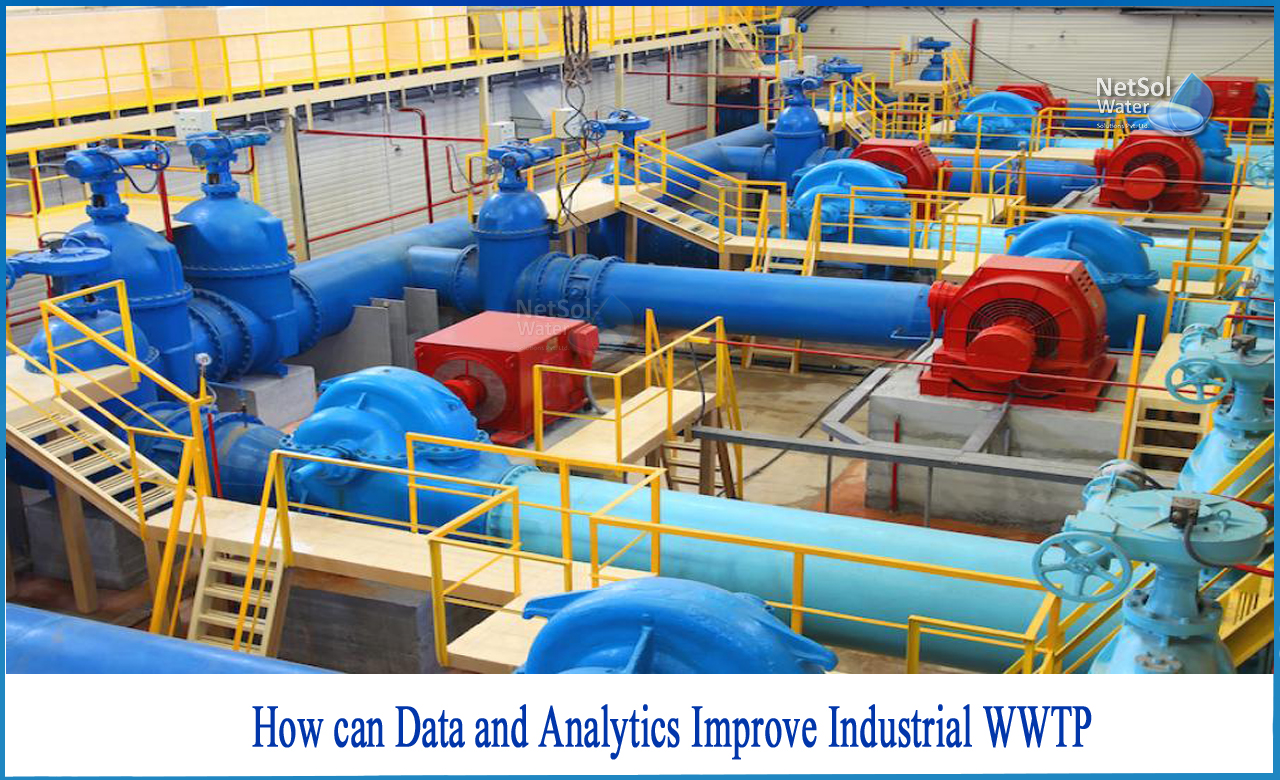How can Data and Analytics improve Industrial WWTP?
Chemical treatment of wastewater is the third and most important phase of wastewater treatment and sewage processing techniques, after biological and physical processes. Processing wastewater or sewage through several phases of extensive chemical treatment is a typical procedure. pH neutralisation, flocculation, coagulation, ion exchange, and oxidation are all part of the process.
The idea is to create recycled or treated water that is cleaner. Using data, analytics, and artificial intelligence (AI) to help utilities and wastewater processes, offer efficient water and sewer services to communities and stakeholders and is a relatively recent phenomenon.
Role of Data and Analytics
If one manages industrial or manufacturing operations, one knows how important it is to understand every part of the operation and how it affects the bottom line.
Wastewater treatment may not appear to be a make or break component in a manufacturing or industrial activity right away. However, it pays to optimise one's wastewater treatment by paying attention to water quality at an industrial site. This will increase corporate results while also lowering costs.
It's possible that improving wastewater treatment at a given location will not necessitate an expensive equipment replacement. We may use existing operational data to identify methods to improve wastewater treatment performance and observe trends with the correct tools.
Learning from Data
An organisation will benefit greatly from an integrated analytical programme that collects raw data over time and provides results. The reports can summarise the information and provide graphs that illustrate patterns. The data becomes more useful when every single piece of the treatment system is examined.
The five areas where predictive analytics can assist one to acquire a better understanding are listed below:
1: To begin, we can determine whether the equipment is not performing as well as it might. It might cost one’s money if machines are offline for maintenance or are running too slowly. It can also clog treatment processing schedules and reduce wastewater throughput.
2:Flow rates and energy consumption can be easily monitored. Based on the volume of data being processed and the time of day, these may ebb and flow. It's possible that machinery that runs at the same speed every day is squandering energy. Smart systems that can adapt to lows and highs can help one save money on electricity.
3: We may view specifics on chemical usage to ensure that they aren't being utilised excessively or inefficiently. This will allow one to better manage chemical expenses while also ensuring that water quality standards are met before the facility is released.
4: We can examine the wastewater to see if it can be cleaned or reused before being released into the environment. One of the most cost-effective methods is to recycle wastewater.
5: We can receive frequent reports on equipment’s, including its efficiency and lifetime stage. We can see the extra money and time spent on repairs if the pump breaks down frequently and requires expensive maintenance on a regular basis
Methods of Collecting Wastewater Data
Many businesses recognise the value of investing in analytical programmes for their operations now that correct technology and sensors are more accessible and efficient. Sensors are typically placed at important locations in the wastewater process. The acquired data is used in real-time by controllers and operators to keep the operation functioning smoothly. Sensors are frequently installed before and after the filtration process in membrane filters, for example. This can aid in the monitoring of crucial metrics such as Total Suspended Solids (TSS).
Analytics to optimize the treatment process
If data is integrated across sites, analytics can assist to contrast and analyse wastewater treatment systems across many connected locations. Large organisations can make efficient judgments by analysing data from different facilities with similar wastes and goals. Improved effluent quality, reduced operator time, and more efficient chemical use are all possible solutions.
Analytics to expand options for recycling and reusing water
Analytics aid in maintaining regulatory compliance and expanding water reuse and recycling possibilities. We can save money and prevent fines if we ensure that wastewater compliance and water quality standards are met.
Conclusion
For wastewater or sewage of any kind, Netsol Water Solutions offer a complete spectrum of wastewater treatment products. Our engineers would gladly collaborate with your team to create the right design that meets your budget and objectives.
Netsol Water is Greater Noida-based leading water & wastewater treatment plant manufacturer. We are industry's most demanding company based on client review and work quality. We are known as best commercial RO plant manufacturers, industrial RO plant manufacturer, sewage treatment plant manufacturer, Water Softener Plant Manufacturers and effluent treatment plant manufacturers. Apart from this 24x7 customer support is our USP. Call on +91-9650608473, or write us at enquiry@netsolwater.com for any support, inquiry or product-purchase related query.



